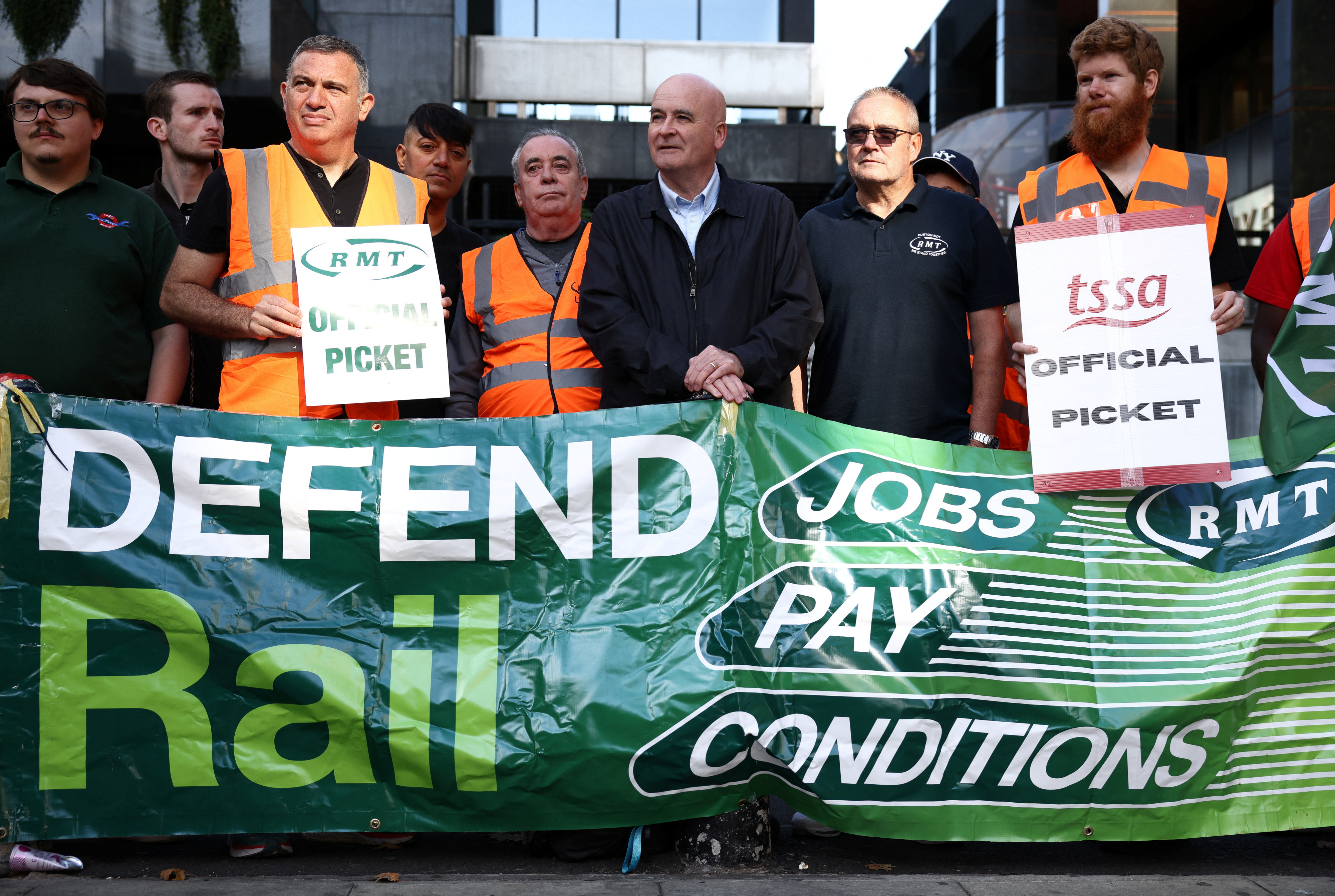UK railway workers strike again as bosses 'awarded' pay raise
The UK Rail, Maritime and Transport Union launches the first of four anticipated strikes after the union rejected a settlement offer.
-

Mick Lynch, General Secretary of the National Union of Rail, Maritime and Transport Workers joins other union members on strike at a picket line outside Euston railway station in London, the United Kingdom, August 20, 2022 (Reuters)
Massive delays and disruptions in transportation are anticipated as tens of thousands of the UK Rail, Maritime and Transport Union (RMT) announced the launch of the first of four 24-hour strikes across the country.
Train companies whose staff have been striking include Avanti West Coast, C2C, Chiltern, CrossCountry, East Midlands Railway, GTR (Thameslink, Great Northern and Southern), Great Western Railway, Greater Anglia, LNER, West Midlands, (including London Northwestern Railway), Northern, South Western Railway, Southeastern, and TransPennine Express.
The union, after launching the strike, said they had been seeking "an unconditional offer" from 14 rail operators, as well as the Network Rail, which is responsible for running the rail network.
Moreover, RMT issued a statement in which it criticized the rail operator "bosses at seven rail companies" for having "awarded themselves annual pay rises of between 15-275% whilst most rail workers have been subject to a pay freeze."
Read more: Thousands of hospital appointments canceled over doctors' strike: UK
UK RMT rejects RDG offer to end workers' strike
Last month, in an attempt to end the series of strikes demanding higher wages, the Rail Delivery Group (RDG), a representative of train operating companies in the negotiation with workers, made an offer that was rejected by the trade union.
According to Mick Lynch, the head of the National Union of RMT, the offer made by RDG was "dreadful" and did not remotely meet workers' demands "on pay, job security or working conditions." On this account, Lynch also noted that no further meetings would be held with RDG, meaning that the strikes will continue.
"Our industrial campaign will continue for as long as it takes to get a negotiated settlement that meets our members' reasonable expectations on jobs, pay and working conditions," Lynch said.
After consulting with 40,000 of its members, the RMT rejected the RDG's deal, which included a minimum 9% pay increase - 5% and 4% for 2022 and 2023, respectively.
According to the union, this offer would have led to "a severe reduction in scheduled maintenance tasks, making the railways less safe", as well as job cuts in the industry.
On the other hand, Secretary of State for Transport Mark Harper called the move "a kick in the teeth for passengers." Harper also claimed that workers themselves were not given an opportunity to consider the offer, as the decision was made by RMT.
"The RMT's leaders should have had the courage to allow their own members to have the chance to vote on their own pay and conditions, rather than making that decision for them behind closed doors," Harper noted.
Read more: London underground tube workers go on strike on 'budget day'

 3 Min Read
3 Min Read








